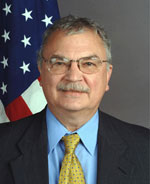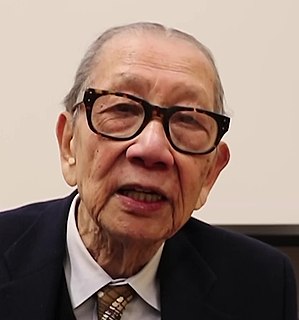A Quote by Jeanne Shaheen
Like many Americans, I am still haunted by images from the last days of the United States' withdrawal from Vietnam in 1975. Newscasts showed South Vietnamese desperately trying to scale the walls of our embassy in Saigon to board the last helicopter flights out of the country. The fear in their eyes was chilling.
Related Quotes
Every book that comes out, every article that comes out, talks about how - while it may have been a "mistake" or an "unwise effort" - the United States was defending South Vietnam from North Vietnamese aggression. And they portray those who opposed the war as apologists for North Vietnam. That's standard to say. The purpose is obvious: to obscure the fact that the United States did attack South Vietnam and the major war was fought against South Vietnam.
There's just no question that the United States was trying desperately to prevent the independence of South Vietnam and to prevent a political settlement inside South Vietnam. And in fact it went to war precisely to prevent that. It finally bombed the North in 1965 with the purpose of trying to get the North to use its influence to call off the insurgency in the South.
I think we can end the divisions within the United States. What I think is quite clear is that we can work together in the last analysis. And that what has been going on with the United States over the period of that last three years, the divisions, the violence, the disenchantment with our society, the divisions - whether it's between blacks and whites, between the poor and the more affluent, or between age groups, or in the war in Vietnam - that we can work together. We are a great country, an unselfish country and a compassionate country. And I intend to make that my basis for running.
We South Vietnamese, we are very concerned about the ah, the fact that the communists are - were very shrewd in trying to take advantage of the American presence in South Vietnam to make the propaganda that they were the only one who fought for the independence of the country and against the, only foreigners, first the French and after that the Americans.
Most of us who were opposed to the war, especially in the early '60's - the war we were opposed to was the war on South Vietnam which destroyed South Vietnam's rural society. The South was devastated. But now anyone who opposed this atrocity is regarded as having defended North Vietnam. And that's part of the effort to present the war as if it were a war between South Vietnam and North Vietnam with the United States helping the South. Of course it's fabrication. But it's "official truth" now.
I first became interested in Ho Chi Minh in 1964-1965 while I was stationed at the U.S. Embassy in South Vietnam as a foreign service officer with the Department of State. The government in Saigon was at the point of collapse and the [Lyndon] Johnson administration was preparing to send U.S. combat troops to prevent a communist victory there. I became convinced that the U.S. effort would not succeed because of the lack of conviction in the Saigon government compared to the discipline and sense of self-sacrifice among the Viet Cong.
But if I'm it, the last of my kind, the last page of human history, like hell I'm going to let the story end this way. I may be the last one, but I am the one still standing. I am the one turning to face the faceless hunter in the woods on an abandoned highway. I am the one not running but facing. Because if I am the last one, then I am humanity. And if this is humanity's last war, then I am the battlefield.
"Ladies and Gentlemen, we're about to begin boarding. If we could ask for your cooperation, please stay seated until you row has been called." ... That's what they say - but somehow, by the time it comes out of the speaker, it sounds like, "Everybody up and rush the door! Everybody up and try to squeeze your big fat butts in the small gate door area! Immediately! ... Do whatever you have to do to get on board. This is the last helicopter out of Vietnam!"
When I came to the United States in 1975 I was eleven, and within a few months my voice broke. I recited commercials like a parrot and I got yelled at quite often. My older brother one night said, "You speak so much English when you're not supposed to, that's why your vocal chords shattered. Now you sound like a duck." I thought it was true. I went from this sweet-voiced Vietnamese kid who spoke Vietnamese and French to this craggy-voiced teenager.
The U.S. directed the war against South Vietnam. There was a political settlement in 1954. But in the late '50's the United States organized an internal repression in South Vietnam, not using its troops, but using the local apparatus it was constructing. This was a very significant and very effective campaign of violence and terrorism against the Vietminh - which was the communist-led nationalist force that fought the French. And the Vietminh at that time was adhering to the Geneva Accords, hoping that the political settlement would work out in South Vietnam.
Never mind that from the 1600s until the late twentieth century the population the United States was 85% white, 12% black, and there have been changes demographically in the United States since the days of its founding. So they're trying to tell you that the United States' greatness happened because of diversity. Well, go back and look at the days the country was founded, and they do. When they do that, they see how racist and bigoted this country was. they see the seeds for bigotry and racism and discrimination were sown at the founding, is how it's now taught.
I think we've become blind in this country to the ways in which we've managed to reinvent a caste-like system here in the United States, one that functions in a manner that is as oppressive, in many respects, as the one that existed in South Africa under apartheid and that existed under Jim Crow here in the United States.































